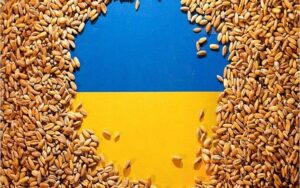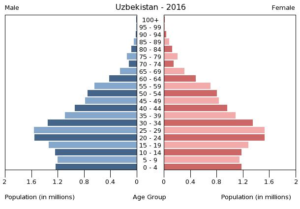
Ukrainian one-dollar store chain Aurora has opened 33 stores in the Romanian market in the first year since entering the market and generated about EUR10 million in revenue, said Taras Panasenko, CEO of the chain.
“For this year, we have a plan of EUR40 million in revenue in Romania, which means to grow four times,” he said at the Exporters Summit organized by Forbes Ukraine in Kyiv.
According to anInterfax-Ukraine correspondent, Panasenko added that the number of checks has reached 1 million, and 98% of buyers are local.
As reported, Aurora invested UAH 2.5 billion in the development of its network in Ukraine in 2024. Last year, the chain’s revenue increased by 42.5% to UAH 38.5 billion (excluding VAT).
“Aurora was founded in 2011 by Lev Zhidenko, Taras Panasenko and Lesya Klymenko. At the end of 2024, the chain had more than 1600 stores in Ukraine and 30 in Romania. The company employs about 14 thousand people. The retail chain is headquartered in Poltava.
According to Forbes, citing Panasenko, Aurora plans to open 340-350 new stores in Ukraine in 2025.
“We want to go public, but we are waiting for the right time for retail companies. Now, for example, Polish Żabka has launched an IPO, and it was successful. However, the main factor that will have a positive impact on our IPO is the end of martial law in Ukraine,” the CEO also said.
According to him, the company does not plan to enter new markets yet, but will focus on the development of Romanian stores. “But we are looking at Uzbekistan, Moldova, Bulgaria,” Forbes quoted Panasenko as saying.

The volume of capital investments in Ukraine in 2024 increased by 35.1% compared to 2023 and amounted to UAH 534.4 billion, the State Statistics Service reported.
Last year, the main source of financing for capital investments remained the own funds of enterprises and organizations, which accounted for 71% of the total.
The agency specifies that the share of the state budget amounted to 10.9%, the share of household funds for housing construction – 6.1%, local budgets – 5.7%, bank and other debt financing – 3.8%, and funds from foreign investors – only 0.1%.
A significant share of capital investments was made in machinery and equipment – 32.8%, engineering structures – 27.2%, and vehicles – 10.1% of all investments.
According to the State Statistics Service, in 2024, capital investments increased the most in the field of transport, warehousing, postal and courier activities – by 77.5%, to UAH 46.8 billion, and in the field of law and accounting – by 73.2%, to UAH 8.2 billion.
In wholesale and retail trade, capital investment increased by 68.2% to UAH 44.2 billion, in information and telecommunications by 67% to UAH 25.8 billion, in education by 63.4% to UAH 2.4 billion, and in professional, scientific and technical activities by 62.4% to UAH 11.4 billion.
The agency points out that last year’s growth in real estate transactions was 57.6% to UAH 9.3 billion, in advertising – 45% to UAH 0.3 billion, in research and development – 39.8%, to UAH 2.9 billion, construction – 36.1% to UAH 41.7 billion, agriculture – 35.5% to UAH 42.9 billion, public administration and defense – 31.4% to UAH 61 billion, and industry – by 23.1% to UAH 209.1 billion,
In addition, according to the State Statistics Service, there was a slight increase in financial and insurance activities – by 14.1%, to UAH 16.5 billion, publishing, radio and television broadcasting – by 19.7%, to UAH 1.2 billion, and healthcare – by 6.5%, to UAH 13.5 billion.
According to the statistics agency, capital investments in Ukraine in 2023 increased by 41.4% to UAH 395.5 billion.
Financing state budget deficit, bln UAH

Source: Open4Business.com.ua

As of March 12, Ukraine exported 31.022 mln tonnes of grains and pulses since the beginning of 2024-2025 marketing year (July-June), of which 1.839 mln tonnes were shipped this month, the press service of the
Ministry of Agrarian Policy and Food reported, citing the data of the State Customs Service of Ukraine.
According to the report, as of March 20 last year, the total shipments amounted to 32.851 mln tons, including 3.181 mln tons in March.
In terms of crops, since the beginning of the current season, Ukraine has exported 12.509 million tons of wheat (526 thousand tons in March), 2.192 million tons of barley (48 thousand tons), 10.8 thousand tons of rye (0), and 15.839 million tons of corn (1.259 million tons).
The total export of Ukrainian flour since the beginning of the season as of March 17 is estimated at 51 thsd tonnes (2.5 thsd tonnes in March), including 47.1 thsd tonnes of wheat (2.4 thsd tonnes).

The escalation of the trade war between the US and Europe is jeopardizing commercial relations worth approximately $9.5 trillion a year, including bilateral trade and investment, according to a report by the American Chamber of Commerce in the EU (AmCham EU). AmCham EU, which represents American companies operating in Europe, notes that the imposed import duties could negatively affect not only the volume of trade in the goods covered by them, but also harm transatlantic investments, which are much higher.
The volume of bilateral trade in goods between the US and Europe, including the UK, reached a record $1.3 trillion in 2024, and the volume of trade in services amounted to more than $750 billion, the Chamber of Commerce reported.
At the same time, according to its estimates, sales of European companies’ subsidiaries in the United States exceeded $3.5 trillion, and branches of American companies in Europe – $4 trillion.
“The damage to trade flows in goods is quite large,” said Malte Lohan, head of AmCham EU. – “The main risk is that all this will begin to affect other ties as well.
US President Donald Trump, speaking about US-European trade relations, mainly focuses on trade in goods, The Wall Street Journal reports. He has repeatedly expressed concern about the high US trade deficit with the EU, which amounted to $235.6 billion last year.
Trump has already imposed 25% duties on steel and aluminum supplies to the United States, particularly from Europe. He is also threatening to impose similar duties on imports of European cars, pharmaceuticals, and a number of other goods in response to tax and regulatory measures in Europe.
Last week, Trump also promised to impose 200% tariffs on European alcoholic beverages in response to the European Union’s decision to increase duties on imports of American whiskey to 50%. Alcohol producers in both the United States and Europe have already stated that the trade war will cause deep damage to the industry. The introduction of 200% duties will effectively close the US market to European wine producers.
The consequences of mutual threats and retaliatory measures could be even more severe, warns Dan Hamilton, a researcher at Johns Hopkins University and one of the authors of the AmCham EU report. The EU could retaliate against Washington by imposing taxes on American services, in which the United States has a trade surplus.
According to a report by the Chamber of Commerce, Europe receives more direct U.S. investment than other regions of the world combined. Meanwhile, European companies account for almost two-thirds of all direct investment in the United States.
The imposition of tariffs could make it more difficult for European companies to send components manufactured in the region to their own facilities in the United States, while retaliatory tariffs from the EU or another Washington trading partner could make it more difficult to export the final product from the United States, Hamilton said. Political uncertainty may cause companies to refrain from transatlantic investments.
“The ripple effect of the conflict in the trade sphere will not be limited to trade,” the expert emphasizes.

According to the National Statistical Committee, as of January 1, 2025, the number of permanent residents of the Republic of Uzbekistan amounted to 37.5 million people.
The permanent population of the Republic of Uzbekistan by years (as of January 1):
– 1920 – 4.4 million people
– 1930 – 4.9 million people
– 1940 – 6.6 million people
– 1950 – 6.2 million people
– 1960 – 8.4 million people
– 1970 – 11.8 million people
– 1980 – 15.8 million people
– 1990 – 20.2 million people
– 2000 – 24.5 million people
– 2010 – 28.0 million people
– 2020 – 33.9 million people
– 2025 – 37.5 million people